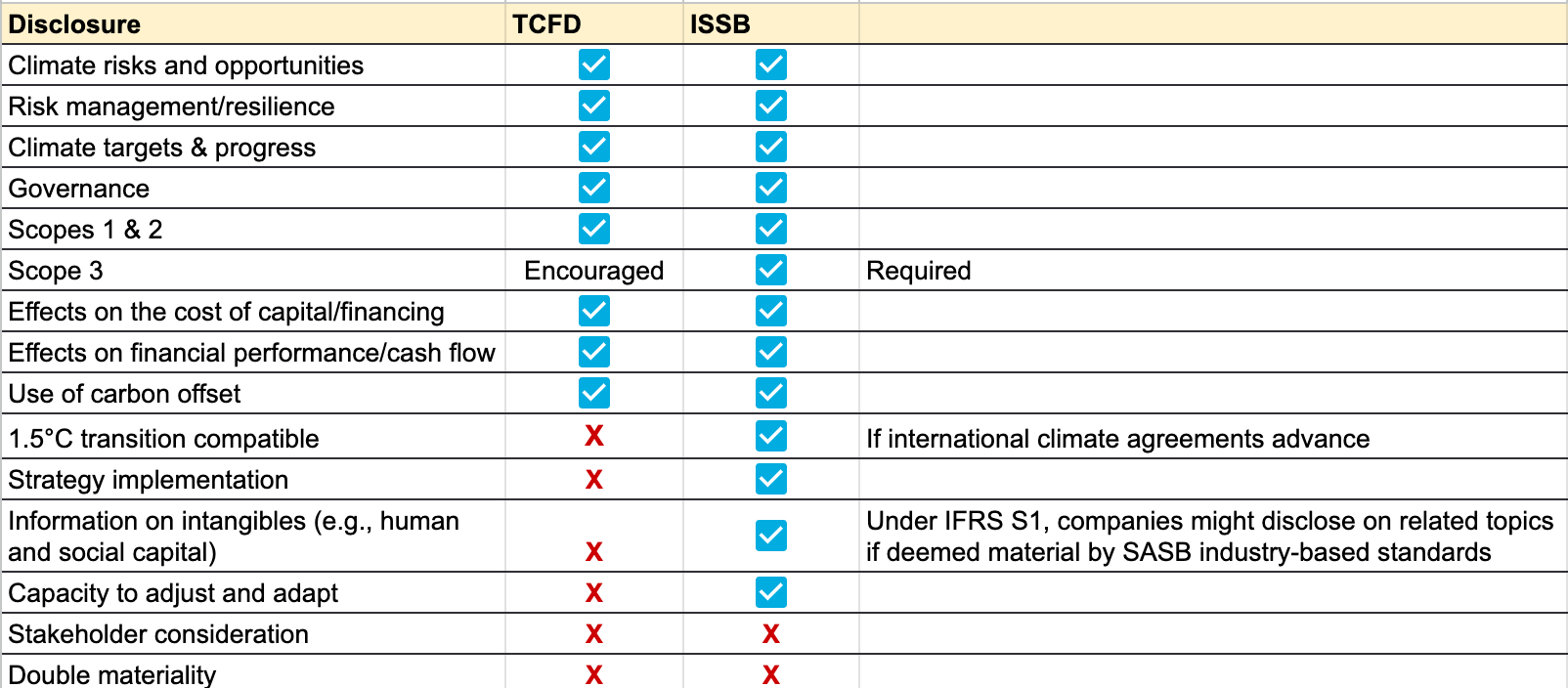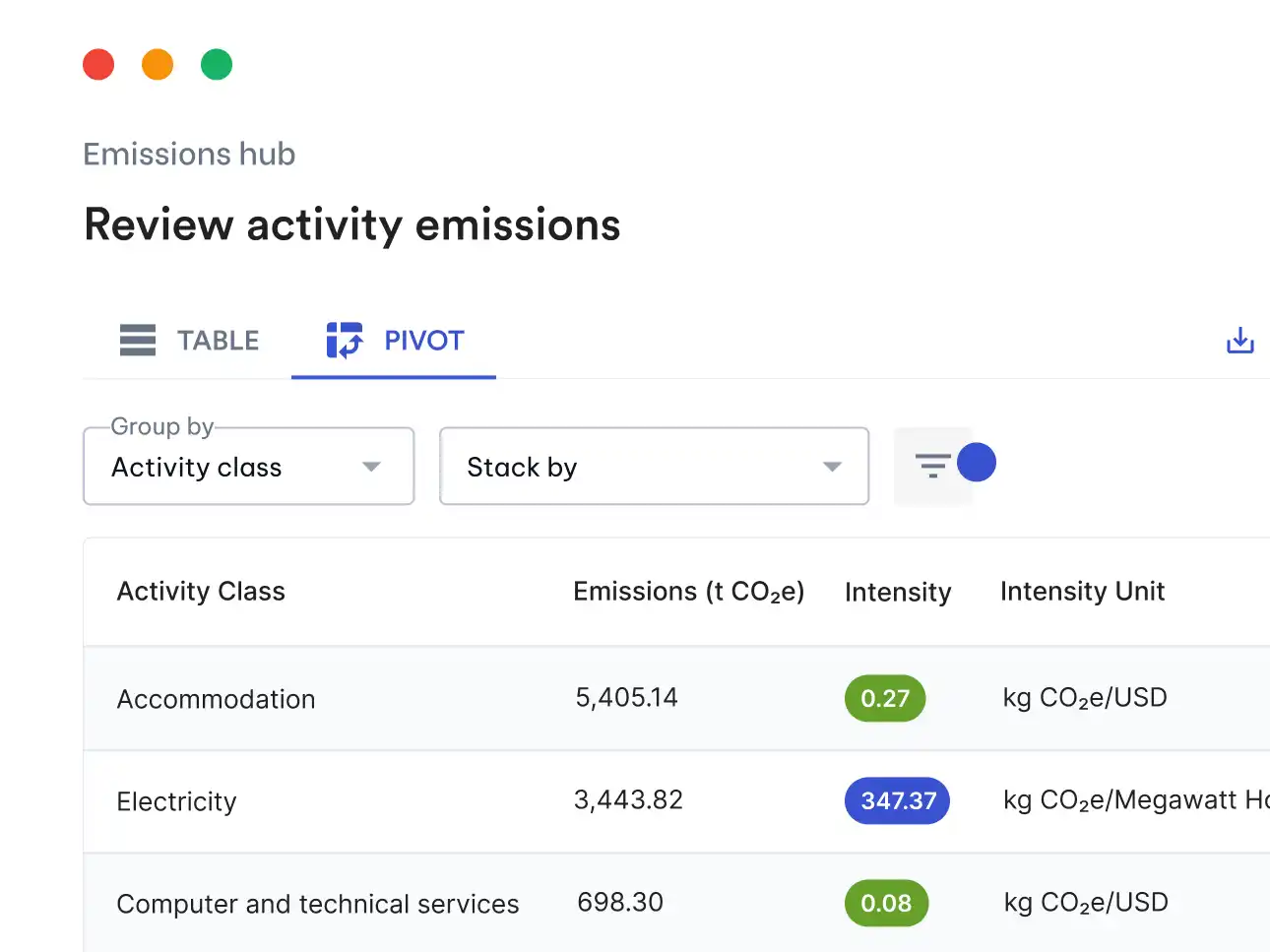Sustainability has become a pressing concern for businesses and organizations of all sizes. Investors, stakeholders, and the public increasingly demand transparency and accountability regarding sustainability practices. In response to this demand, the ISSB was established to unify sustainability reporting, reduce the burdens, complexity, and confusion faced by companies, and encourage wider adoption of sustainability practices. In this blog post, we’ll take a closer look at the ISSB framework, its key features, and how it can help organizations demonstrate their commitment to sustainability and promote transparency and accountability.
What is ISSB?
The International Sustainability Standards Board (ISSB) was created by the International Financial Reporting Standards (IFRS) Foundation in November 2021 at the UN Climate Change Conference (COP26). The aim is to provide a global baseline of sustainability disclosures that align with the requirements of capital markets. While several frameworks, principles, and standards already exist, the current reporting landscape is fragmented and inconsistent – making it challenging to make clear and concise comparisons across the global landscape. Recognizing this challenge, ISSB has collaborated with stakeholders from existing disclosure frameworks, international government bodies, and corporate representatives to create a global baseline. The ISSB has international support backed by the G7, the G20, the International Organization of Security Commissions (IOSCO), the Financial Stability Board, African Finance Ministers and Finance Ministers, and Central Bank Governors from more than 40 jurisdictions.
The ISSB has four key objectives:
- to develop standards for a global baseline of sustainability disclosures;
- to meet the information needs of investors;
- to enable companies to provide comprehensive sustainability information to global capital markets; and
- to facilitate interoperability with jurisdiction-specific disclosures and/or aimed at broader stakeholder groups.
(ifrs.org)
Drawing on the success of market-led investor-focused reporting initiatives like the Climate Disclosure Standards Boards (CDSB), the Task Force for Climate-related Financial Disclosures (TCFD), the Value Reporting Foundation’s Integrated Reporting Framework, the industry-based SASB Standards, and the World Economic Forum’s Stakeholder Capitalism Metrics, the ISSB has built upon these efforts to develop globally accepted sustainability reporting standards.
The ISSB is dedicated to producing standards that are not only cost-effective but also decision-useful and market-informed. With efficiency in mind, the standards have been designed to help companies report what is necessary globally to investors across markets. Additionally, the standards aim to provide the appropriate information in a manner that supports investors' decision-making and enables international comparability to attract capital.
What are the benefits of using the ISSB standards?
Using the ISSB standards for sustainability disclosure offers several benefits, including:
- Global baseline: The ISSB has committed to improving compatibility with other international and jurisdictional sustainability-related standards to support adoption better. This is positive for businesses that already utilize existing frameworks, enabling them to better comply with the forthcoming final ISSB standards. A company can also avoid double-reporting by applying the ISSB standards.
- Improved comparability: The standards offer a consistent framework for companies to disclose their sustainability information, enabling stakeholders to compare their performance across different companies and industries.
- Increased transparency: The standards requires companies to disclose their sustainability performance in a comprehensive and transparent manner, giving stakeholders a better understanding of said performances.
- Enhanced credibility: Using an internationally recognized standard can enhance a company’s credibility and reputation, particularly in the eyes of investors, regulators, and customers who are increasingly interested in sustainability.
- Better risk management: By using ISSB, companies can better identify, assess, manage risks, and minimize their exposure to potential losses.
- Increased access to capital: The standards can help companies attract more investment, particularly from investors who are signatories to the Principle for Responsible Investment (PRI).
What are the contents of the ISSB standards?
The ISSB has published two exposure drafts for stakeholder input in July 2022 and is currently reviewing and considering all feedback and comments received on IFRS S1 General Requirements for Disclosure of Sustainability-related Financial Information (PDF) and IFRS S2 Climate-related Disclosures (PDF). The proposed IFRS S1 draws on sector-specific Sustainability Accounting Standards Board (SASB) standards.The IFRS S2 are consistent with the Taskforce on Climate related Financial Disclosures (TCFD) and focuses on four key areas: governance, strategy, risk management, and metrics and targets.
IFRS S1 and SASB Standards
IFRS S1 lays the groundwork and basis for the ISSB to develop additional specific standards on various sustainability topics in the future. It mandates that companies must disclose relevant information about all significant sustainability-related risks and opportunities that may impact their enterprise value and require assessment by investors. Additionally, by incorporating the SASB industry-specific approach, the ISSB acknowledges that sustainability concerns differ across industries. The ISSB has confirmed that companies must take into account the sector-specific SASB standards, disclosures, and metrics to meet the IFRS S1 requirements effectively, while also being able to consider the Climate Disclosure Standards Board (CDSB) guidance. The ISSB has brought together all SASB and CDSB materials under one roof, providing companies with a single source of reference.
IFRS S2 and the TCFD
The disclosure requirements stated in IFRS S2 are in agreement with the 11 recommended disclosures and four thematic pillars of the TCFD, which is positive considering the TCFD has support from more than 2,600 global advocates, including over 1,000 financial institutions. While mostly aligned with the TCFD, the IFRS S2 requires additional and more granular information from reporting entities.

What's next for the ISSB?
New announcements and developments in sustainability reporting seems to be made almost daily, including:
- ISSB and CDP: The Climate Disclosure Project (CDP) will incorporate IFRS S2 into its disclosure system from 2024. Integrating the ISSB will reduce the reporting burden for nearly 20,000 companies currently using CPD.
- GRI and ESRS/CSRD: Still under discussion is the use of and reference to other reporting standards such as the Global Reporting Intiative (GRI) and the European Sustainability Reporting Standards (ESRS) for companies reporting on sustainability under the EU’s Corporate Sustainable Reporting Directive (CSRD).
- Year of relief: During the first year of reporting, companies are not required to disclose sustainability-related risks and opportunities, provide annual sustainability-related information simultaneously with their financial statements, provide comparative information, disclose Scope 3 GHG emissions or use the GHG Protocol to measure emissions. This means companies will be able to use their first year of reporting to familiarize themselves with the concept and requirements of the ISSB standard.
Whether the ISSB standards become adopted worldwide and which specific companies must apply them are subject to the discretion of each individual national regulator and authorities to decide. The ISSB intends to issue the final version of IFRS S1 and S2 in 2023. Its goal is to foster greater consistency and alignment between other standards, promote greater acceptance, reduce the complexity and burden of sustainability reporting, and promote greater uptake.
UPDATE
29-June-2023: The International Sustainability Standards Board (ISSB) has officially launched its global sustainability and climate disclosure standards IFRS S1 and IFRS S2. To learn more, visit: What the new ISSB global sustainability and climate disclosure standards mean for your business.





